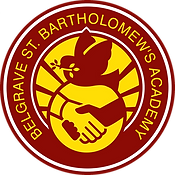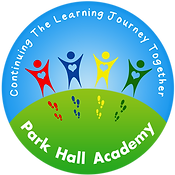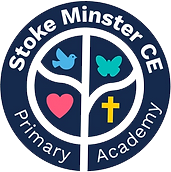Computing
Cultural Capital
At our primary school, we value cultural capital and aim to develop well-rounded, culturally aware students. From Early Years, we foster effective communication, parental engagement, and an appreciation of local cultural diversity.
In Key Stage 1, we build upon these skills within the context of the maths and English curricula. In Key Stage 2, students focus on social, emotional, and mental wellbeing, while expanding their vocabulary and debating skills.
Our computing curriculum, based on the NCCE scheme of work, encourages students to become responsible digital citizens. By the end of primary school, they develop confidence in expressing their views and opinions in various situations. Weekly, engaging computing lessons inspire curiosity and fascination with technology, preparing students for the real world.
We provide numerous opportunities for children to explore and experience technology, helping them become informed and thoughtful members of the digital community. Our approach to cultural capital supports student success in society, secondary school, further education, and future careers.
AIMS
Not only do pupils use technology to access the broader curriculum as consumers and creators but pupils also take part in a constantly evolving and exciting computing curriculum the aims of which are outlined below.
-
Provide a broad, balanced, challenging and enjoyable curriculum for all pupils.
-
Meet the requirements of the national curriculum programmes of study for Computing at Key Stage 1 and 2.
-
Develop pupil’s computational thinking skills that will benefit them throughout their lives.
-
Use ICT and computing as a tool to enhance learning throughout the curriculum.
-
To equip pupils with the confidence, skills and capability to use digital tools and technologies throughout their lives.
-
To stimulate interest in new technologies.
-
To enhance and enrich learning in other areas of the curriculum by cross curricular use of ICT
-
To develop the understanding of how to use computers and digital tools safely and stay safe online.
READ ABOUT OUR
Subject Snapshot
Our computing curriculum cultivates creativity, resilience, problem-solving, and critical thinking in an increasingly digital world. We focus on IT, computer science, and digital literacy, prioritising online safety and engaging the wider community in our efforts.
Our dedicated computing suite and 1:1 device program provide pupils with opportunities to develop digital competence. Teachers use technology to enhance learning across the curriculum, and assessments enable tailored learning experiences.
The curriculum fosters responsible digital citizenship and local and global community connections. Pupils explore the impact of computing in the 21st century and real-world applications of technology.
By the end of primary education, our pupils are confident communicators, equipped with computing skills and cultural capital for success in secondary education and beyond.
READ ABOUT OUR
Progression Pathway
A computing progression pathway outlines a structured learning journey for students, ensuring the development of essential skills and knowledge in line with the National Centre for Computing Education’s scheme of work. It focuses on three core areas: computer science, information technology, and digital literacy.
The pathway helps educators deliver a balanced and comprehensive curriculum that builds upon previous learning, fosters problem-solving and creativity, and prepares students for future academic and professional success. By offering a clear, step-by-step framework, the progression pathway supports consistent, high-quality computing education across all grade levels.
DISCOVER MORE
Further Information
“Through our computing curriculum at Nantwich Primary Academy we aim to give our pupils the life-skills that will enable them to embrace and utilise new technology in a creative, as well as responsible and safe way in order to flourish. We acknowledge that technological devices and software are an integral part of everyday life and that society is becoming more and more reliant on technology to guide, innovate and develop practice in many sectors of work, education, and daily life.
We will strive to keep children safe on line and provide them with the knowledge and tools to do so. We will also empower parents, carers and the wider community with up to date information regarding keeping children safe online.
We want children to become autonomous, independent users of computing technologies, gaining confidence and enjoyment from their activities. We want the use of technology to support learning across the entire curriculum and to ensure that our curriculum is accessible to every child. Not only do we want them to be digitally literate and competent end-users of technology but through our computer science lessons we want them to develop creativity, resilience and problem-solving, and critical thinking skills.
We want our pupils to have a breadth of experience to develop their understanding of themselves as individuals within their community but also as members of a wider global community and as responsible digital citizens. We will use IT and computing to empower staff to work more efficiently, creatively and effectively to improve their teaching and the assessing of the pupils in their class.”
Our pupils have access to iPads and a dedicated computing suite. However, we are in the process of equipping every Key Stage 1 and 2 class with iPads, so that the majority of these pupils are part of a 1:1 device program. We intend to deploy iPads to every pupil and these will be used to build on learning to access the broader curriculum. Teachers already have access to a class laptop and iPad. All iPads and computers around the school are networked and have Internet access. We keep resources for ICT and computing, including software, in a central store.
As part of our revamped curriculum plan, teachers will regularly be part of a monitoring, developing and reviewing process throughout the academic year. Teachers will assess pupils’ capability through observations and looking at completed work, and gaining evidence from pupil voice. Formative assessment is carried out daily following tasks and activities and summative assessment is carried out at the end of each unit of work.
Teachers use online platforms to save children’s work, or use dedicated folders on our school server. Upon completion of the new iPad roll-out, they will use Showbie and complementary apps to record evidence and provide effective feedback. The children will equally be then able to share what they have achieved in each lesson by writing, typing, using voice notes or taking photos and videos. At the end of the half term, the hope is that children will upload their journal to Showbie where teachers make a summary judgement of the work for each pupil as to whether they have yet to obtain, obtained or exceeded the expectations of the unit.
The ICT and computing technician (Red Top) / coordinator are responsible for regularly updating anti-virus software.
Children sign the iPad User Contract form when they enter the school in September.
Use of ICT and computing will be in line with the school’s ‘acceptable use policy’. All staff must sign a copy of the school’s policy annually.
Children sign a ‘Responsible internet access and ICT use for pupils’ form when they enter the school in Year 1.
Parents will be made aware of the ‘acceptable use policy’ at school entry.
All pupils and parents will be aware of the school rules for responsible use of ICT and computing and the internet and will understand the consequence of any misuse.
The agreed rules for safe and responsible use of ICT and computing and the internet will be displayed in all ICT and computing areas.
The rules of online safety are displayed where any child can access the internet. If a child breaks these rules, they will be denied internet access for a period of time after which the situation will be reviewed.
All staff, including managerial and administrative staff, receive support from the subject leader or technicians and, where necessary, external training in hardware or software which they are expected to use to carry out their role.
LEADER FOR ICT AND COMPUTING
The subject leader is responsible for providing professional leadership and management of computing within the school. They will monitor standards to ensure high quality teaching, effective use of resources and improved standards of learning and achievement. This will include observation of lessons and scrutiny of the pupils’ work. They will collect, analyse and distribute, where applicable, information relating to the subject to the relevant people.
CLASS TEACHERS
It is the responsibility of each class teacher to ensure that their class is taught all elements of the ICT curriculum as set out in the national curriculum programme of study.
ALL STAFF
It is the responsibility of all staff to make themselves aware of legislation relating to the use of ICT and computing, including copyright and data protection issues.
At Nantwich Primary Academy we believe in providing our pupils with the best possible education by using the best available tools and teaching methods. We are committed to fully inclusive, personalised learning and we always aspire to do all we can to ensure that each and every child progresses quickly and achieve their full potential, regardless of any barriers
Teachers identify children who are gifted and talented in the area of Computing. It is the teacher’s responsibility to ensure that these children are suitably challenged in their use of computing both in specific computing lessons and when using ICT in other curriculum areas. Opportunities are identified for these children to actively participate in more challenging aspects of computing.
At Nantwich, we have adapted our planning to the NCCE (National Centre for Computer Excellence) model, following conversations and training with their SME (Subject Matter Expert) Paul Gerrie. Staff have adapted their planning and assessment and made close links with STEM wherever possible, to make it relevant to the children of our school. Staff follow medium term plans with the objective set out in the national curriculum, key vocabulary and links to activity ideas. There are supporting rubricks and learning graphs. The units have been planned and designed to enable pupils to achieve stated objectives and will allow for clear progression.
The monitoring of the standards of the children’s work and of the quality of teaching in computing is the responsibility of the computing subject leader. The computing subject leader is also responsible for supporting colleagues in the teaching of computing, for keeping informed about current developments in the subject and for providing a strategic lead and direction for the subject in the school. The computing subject leader will give the principal an annual summary report in which they evaluate the strengths and weaknesses in the subject and indicates areas for further improvement. The computing subject leader will have specially-allocated time for carrying out the vital task of reviewing samples of the children’s work and for visiting classes to observe the teaching of ICT and computing.
The school is aware of the health and safety issues involved in children’s use of ICT and computing. An electrical inspection is carried out in school regularly, following recommended guidelines. Portable electrical equipment in school is tested by the site manager every twelve months. It is advised that staff should not bring their own electrical equipment in to school but if this is necessary, then the equipment must be PAT tested before being used in school. This also applies to any equipment brought in to school by, for example, people running workshops, activities, etc. and it is the responsibility of the member of staff organising the workshop, etc. to advise those people. All staff should visually check electrical equipment before they use it and take any damaged equipment out of use. Damaged equipment should then be reported to the ICT technicians.
Teachers are responsible to ensure that children do not put plug into sockets or switch the sockets on, trailing leads are made safe behind the equipment, no liquids on tables and that safety guidelines are displayed in the classroom.
At Nantwich, we engaged with families as best as restrictions would allow and are proud of the support we gave and the feedback we received. Now that restrictions have eased, we are keen to further involve parents in our school life. Our aim is that parents will be invited in to observe lessons where their children are using iPads, once the roll-out concludes. We are eager to provide online safety workshops to support parents with online security, age restrictions and any technical queries they may have, following good practise seen in sister schools within the St Bart’s Multi-Academy Trust. We continue to utiliise our ClassDojo network to liaise with families and promote events and successes both within and outside of the normal school day.
The school is supported by Red Top ICT Technicians whose specific roles relate to the provision of support in ICT. This support takes a variety of forms, including:
Dealing with technical queries relating to software and hardware.
Carrying out rudimentary and routine maintenance and repairs of hardware.
Purchasing and updating equipment.
Supporting teachers in the use of ICT in other curriculum areas.
Supporting admin staff with the use of ICT within their roles.
A support technician visits the school every 2 weeks, and virtual support alongside phone / email is available each school day as required.
FIND OUT MORE
Useful Links & Downloads
NATIONAL CURRICULUM
The national curriculum for computing aims to ensure that all pupils:
-
Can understand and apply the fundamental principles of computer science, including logic, algorithms, data representation, and communication.
-
Can analyze problems in computational terms, and have repeated practical experience of writing computer programs to solve such problems.
-
Can evaluate and apply information technology, including new or unfamiliar technologies, analytically to solve problems.
-
Are responsible, competent, confident, and creative users of information and communication technology.
Examples of Cross-Curricular Links
READING
Pupils use e-books and digital libraries to explore various genres, develop reading comprehension skills, and participate in online book discussions.
WRITING
Pupils practice writing using word processing software, focusing on spelling and grammar, and share their work with peers through secure online platforms.
MATHS
Pupils create simple programs to solve maths problems, like addition and subtraction, using algorithms and basic programming.
SCIENCE
Pupils use data logging devices and software to collect, analyse, and present data from scientific experiments.
HISTORY
Pupils research historical events with digital mapping tools and create interactive timelines to demonstrate understanding.
GEOGRAPHY
Pupils photograph local landmarks, create digital collages, and annotate them with information about locations and features.
ART
Pupils explore digital art, using software and tablet apps to create artwork while learning about famous digital artists.
MUSIC
Pupils use music composition software to create melodies and compositions, learning basic music theory and technology’s influence on music.























